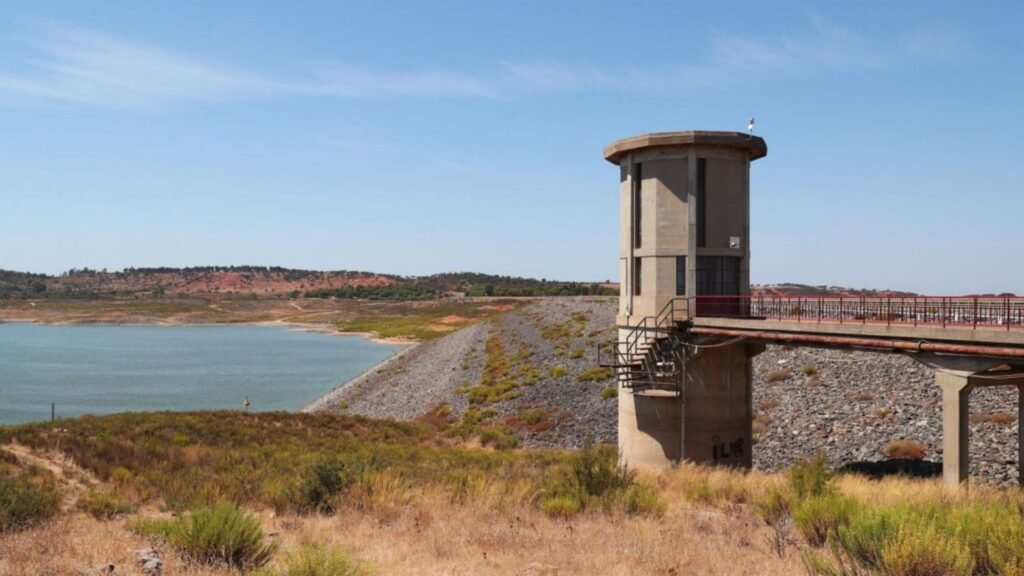The government recently signed a contract to build a €108 million desalination plant in Albufeira, Algarve. Officials called it a historic moment for the region. The plant is supposed to solve the Algarve’s growing water shortage.
But some of them disagree with this project. Some locals and experts think it can cause more problems than solve. They worry about its impact on the environment, cost, and the legal issues involved.
Read More About: Prime Minister Luis Montenegro Considers Signing Of Contract For Algarve Desalination Plant A “Historic Moment”
Algarve’s Desalination Project Background

Water shortages have become a serious issue in the Algarve. Tourism and farming are important in the region. Both require a lot of water. The lack of rain due to climate change has made the situation worse. A desalination plant is the solution the government thinks is needed to meet potential water needs. We take the salt from seawater in the desalination process so that it can be drunk.
The desalination idea is good for a region surrounded by the sea. However, some people are worried that the government has not fully thought through the environmental, financial, and legal challenges that come with such a project.
Environmental Concerns
One of the main concerns is the possible harm to the environment. These desalination plants require a lot of energy to operate. They also produce a salty waste product called brine which is dumped back into the sea.
This brine can damage marine life and upset the balance of the ecosystem. A biological engineer Cláudia Sil says the environmental assessments for the project are not complete. She believes the plant can do more harm than good.
She said:
I admire the courage of the signatories of the contract. Perhaps they are not familiar with the court cases, or perhaps they blindly trust in justice. They must be confident that the project and the respective RECAPE Environmental Compliance Report for the Execution Project that they are going to invest in and present will comply with the requirements of the DIA and will be accepted, after the public consultation, despite the consortium’s absolute lack of experience in this type of project.
Other environmentalists agree. They say desalination should only be used as a last resort. They argue that there are better ways to address the water problem. For example, they suggest reducing water use, fixing leaks in the system, and encouraging farmers to use water more efficiently. These solutions can be less harmful to the environment than building this plant.
Local Resistance And Legal Issues
There are also problems with land ownership. Some part of the land that is needed for the plant belongs to local homeowners. These residents said that the government is not giving enough money for their property. Many of them are refusing to sell. They are prepared to take legal action to keep their land.
One local resident expressed his frustration. He said:
The contract means nothing. We will file a lawsuit to stop the construction.
Many believe the project will face several legal challenges before any construction can begin. The process of getting approvals from local authorities has also been slow. This adds uncertainty to the project’s timeline.
Critics said:
The DIA is being contested and when the time is right, we will file an injunction to stop construction. So this whole process is a big lie, and what happened with the signing of the contract was yet another chapter in this lie.
Authorities want us to believe that this infrastructure will minimise or even solve the Algarve’s water problems (…) If this was the case, why haven’t the hundreds of desalination plants built in Spain solved Spain’s water problems? As far as we know, Spain still has extremely serious water problems, even in areas served by their desalination plants
Financial Concerns And Political Pressure
Another major issue is the cost of the desalination plant. European Union Recovery and Resilience Plan (PRR) has funded this project partially. But most of the money will come from Portugal’s national budget. Critics have noted that the cost of the project has already doubled. This raises concerns about how well the money is being managed.
Some experts said that the government is pushing this project for just political reasons. They say officials want to show progress on solving the water problem even though the project is not fully ready. Insiders have also raised doubts about whether the plant will be finished on time.
The project must be completed by 2026 to meet the PRR deadline. One expert said:
This deadline will not be met
He suggested that the companies involved are aware of this but are moving forward because of political pressure.
He said:
Yesterday’s signing was all about playing politics. It looks more like a piece of theatre than a viable project for the Algarve.
Spain’s Desalination Plant Experience
Opponents of the project often point to Spain as a warning. Spain has built many desalination plants over the years but the country still faces severe water shortages. The water produced by these plants is expensive and requires a lot of energy. Some regions of Spain continue to experience droughts.
One local resident asked:
If desalination is such a great solution, why hasn’t it solved Spain’s water crisis
Many people in the Algarve are worried they will face the same problems. This skepticism has led many to doubt whether the plant will truly solve the Algarve’s water problem.
